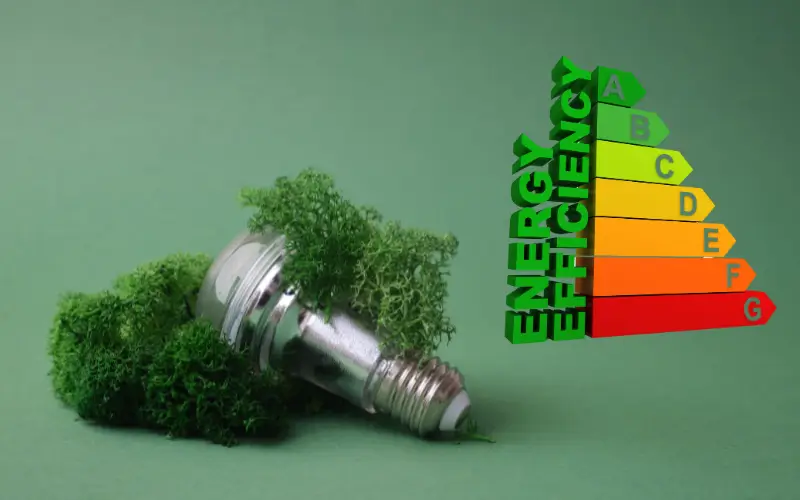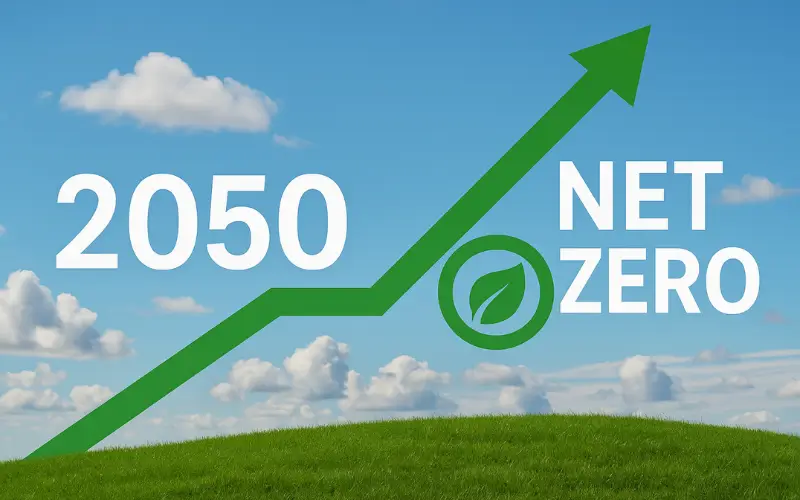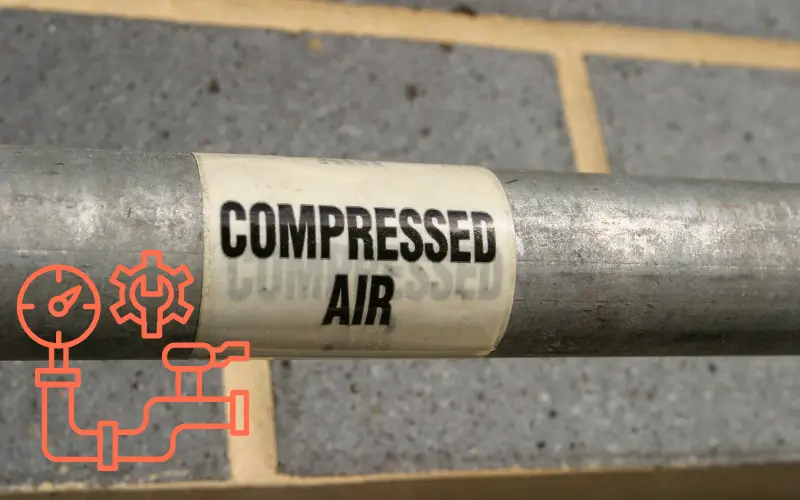In recent years, Bangladesh has made significant strides in economic development, infrastructure, and industrial growth. However, with this progress comes an increasing demand for energy—much of which is still sourced from non-renewable and carbon-intensive fuels. As the country seeks sustainable growth, energy efficiency has emerged as a critical national priority.
Energy efficiency not only helps reduce energy consumption and operational costs but also plays a vital role in lowering greenhouse gas emissions, improving energy security, and enhancing environmental sustainability. Recognizing these benefits, the Government of Bangladesh has introduced a range of policies, regulatory frameworks, and financial incentives to promote the efficient use of energy across various sectors.
This blog post explores the government’s role in advancing energy efficiency in Bangladesh. From policy blueprints and institutional support to financial incentives and implementation challenges, we will provide an in-depth overview of the current landscape. Whether you’re a policymaker, industry stakeholder, or simply someone interested in sustainable development, this guide will help you understand the evolving energy efficiency ecosystem in Bangladesh.
Understanding Energy Efficiency in Bangladesh
What is Energy Efficiency and Why It Matters
Energy efficiency refers to using less energy to perform the same task or produce the same outcome. It involves adopting technologies and practices that consume less energy while delivering equal or better performance. This could mean replacing traditional light bulbs with LEDs, upgrading industrial motors, or insulating buildings to reduce the need for heating and cooling.
In Bangladesh, energy efficiency is not just a cost-saving measure—it’s a national necessity. With rising energy demand, limited fossil fuel reserves, and a growing emphasis on environmental sustainability, energy efficiency stands out as one of the most practical and impactful solutions.
Benefits of Energy Efficiency for Bangladesh
- Reduces Energy Imports: By using energy more efficiently, Bangladesh can lessen its dependence on imported oil and gas, improving energy security and reducing the trade deficit.
- Improves Industrial Competitiveness: Lower energy bills mean lower production costs, making Bangladeshi industries more competitive globally.
- Environmental Impact: Efficient energy use helps reduce greenhouse gas emissions and air pollution, supporting the country’s climate commitments.
- Boosts Economic Growth: Energy savings can be redirected into other productive sectors, spurring investment and innovation.
Current Energy Consumption Patterns in Bangladesh
Sector-Wise Energy Use
Bangladesh’s energy consumption is primarily driven by three major sectors:
- Industrial Sector (~48%): Textile, garments, steel, and cement industries are major energy users.
- Residential Sector (~30%): Households consume energy mainly for lighting, cooking, and cooling.
- Commercial and Transport Sectors (~22%): Energy is used in offices, retail spaces, and transportation networks.
Key Trends
Rapid Growth in Demand: Energy demand has grown steadily due to urbanization, economic growth, and electrification efforts.
- Electricity Mix: The country relies heavily on natural gas, but there’s a rising share of renewable energy (especially solar) under government initiatives.
- Energy Intensity: While improving, Bangladesh’s energy intensity (energy consumed per unit of GDP) is still higher than in many efficient economies, indicating room for improvement.
Key Government Policies on Energy Efficiency
The Government of Bangladesh has established a strong policy framework to promote energy efficiency and conservation across all major sectors. These policies are aimed at ensuring sustainable energy use, reducing dependency on fossil fuels, and aligning with international climate commitments. Below are the key policies shaping the country’s energy efficiency landscape:
Energy Efficiency and Conservation Master Plan up to 2030
Launched by SREDA with support from JICA (Japan International Cooperation Agency), this master plan serves as the foundational strategy for energy conservation in Bangladesh.
Objectives:
- Reduce primary energy consumption per GDP by 20% by 2030 (from 2013 levels).
- Implement energy efficiency programs across industrial, residential, commercial, and transport sectors.
Key Strategies:
- Enforce mandatory energy audits in large energy-consuming industries.
- Introduce Minimum Energy Performance Standards (MEPS) and energy labeling.
- Promote Energy Management Systems (EnMS).
- Build institutional capacity and develop local expertise.
Expected Outcomes:
- Significant reduction in national energy consumption.
- Decreased environmental impact and improved air quality.
- Economic savings across public and private sectors.
Sustainable and Renewable Energy Development Authority (SREDA)
SREDA is the principal government body responsible for promoting energy efficiency and renewable energy in Bangladesh. Established in 2012 under the SREDA Act, it operates under the Power Division of the Ministry of Power, Energy and Mineral Resources.
Functions:
- Policy formulation and coordination.
- Capacity building and awareness campaigns.
- Development of financial mechanisms for energy-efficient technologies.
- Monitoring and evaluation of national energy efficiency initiatives.
Notable Initiatives:
- Establishment of an Energy Manager Certification program.
- Launch of the Energy Efficiency and Conservation Clearing House for data and resources.
- Partnerships with international organizations for technical and financial support.
Energy Efficiency and Conservation Rules (2014)
These rules provide the regulatory backbone for enforcing energy efficiency measures nationwide.
Highlights:
- Mandates energy audits for designated consumers.
- Requires energy managers to be appointed in large industries.
- Authorizes inspection and enforcement by government bodies.
- Provides legal framework for developing standards and labeling systems.
National Energy Policy (1996) – Updates and Revisions
While originally designed for energy security and resource management, the National Energy Policy (NEP) has undergone revisions to include energy conservation and efficiency.
Recent Focus Areas:
- Promotion of renewable energy integration.
- Support for demand-side management (DSM) techniques.
- Encouragement of public-private partnerships (PPPs) for efficient energy solutions.
Government Incentives for Promoting Energy Efficiency
To accelerate the adoption of energy-efficient technologies and practices, the Government of Bangladesh offers a range of incentives. These are designed to address financial, regulatory, and market-related barriers, making energy efficiency more accessible to industries, businesses, and households alike.
Financial Incentives
Financial constraints are often one of the biggest obstacles to implementing energy-efficient solutions. The government and partner agencies have introduced several support mechanisms to ease the upfront cost burden:
Tax Rebates and Import Duty Reductions
- Reduced or zero import duties on certified energy-efficient equipment (e.g., LED lighting, variable frequency drives, high-efficiency motors).
- Corporate tax incentives for industries investing in energy-saving technologies.
Low-Interest Loans and Credit Lines
- SREDA, in collaboration with multilateral agencies like the World Bank and JICA, supports concessional loans for energy audits and efficiency upgrades.
- Credit lines through financial institutions such as Bangladesh Bank’s Green Transformation Fund (GTF) targeting energy-efficient machinery in export-oriented sectors.
Grants and Subsidies
- Project-based grants for pilot programs or demonstration projects involving innovative energy-saving technologies.
- Co-financing mechanisms for energy service companies (ESCOs) working with SMEs and industrial facilities.
Regulatory Incentives
The government has introduced regulatory mandates that act as both compliance requirements and performance motivators.
Mandatory Energy Audits
- Large industries and commercial entities designated by SREDA are required to conduct periodic energy audits.
- Audit reports are used to set energy performance benchmarks and improvement targets.
Minimum Energy Performance Standards (MEPS)
- Standards have been introduced for key appliances (air conditioners, fans, refrigerators, etc.).
- MEPS help eliminate inefficient products from the market while pushing manufacturers to innovate.
Energy Manager Certification
- Facilities employing certified energy managers gain compliance advantages and recognition.
- Encourages professional development and technical capacity within organizations.
Market-Based Incentives
Market-driven programs are helping shape consumer behavior and create new business models for energy efficiency.
Energy Efficiency Labeling Programs
- Appliances and equipment are labeled with energy ratings (e.g., 1-star to 5-star systems).
- These labels empower consumers to make informed decisions and favor high-efficiency products.
Promotion of Energy Service Companies (ESCOs)
- ESCOs provide energy efficiency upgrades with performance-based contracting.
- They enable industries to adopt new technologies without high upfront investments, paying instead through shared savings.
Green Building Certifications
- Incentives for developers who comply with green building guidelines under the Bangladesh National Building Code (BNBC).
- Encourages the use of natural lighting, passive ventilation, and energy-saving materials.
With strong policy frameworks and meaningful incentives in place, the government is actively transforming the country’s energy use practices. However, turning policies into widespread action is not without its challenges.
Sector-Specific Energy Efficiency Initiatives
Bangladesh’s energy efficiency strategies are tailored across various sectors to target their unique consumption patterns and challenges. This section explores how government policies and incentives are being implemented in key areas of the economy.
Industrial Sector
As the largest energy consumer in Bangladesh, the industrial sector—particularly textiles, garments, cement, and steel—has immense potential for efficiency gains.
Energy Management Programs
- The government mandates energy audits for large-scale industrial consumers.
- Designated Energy Managers are required to oversee consumption tracking and efficiency improvements.
- Support for ISO 50001 adoption (Energy Management System) among large manufacturers.
Adoption of Efficient Technologies
- Promotion of energy-efficient boilers, motors, and chillers.
- Encouragement to replace outdated machinery with high-efficiency alternatives using green finance loans.
Case Studies
- Textile mills have achieved up to 25% energy savings through equipment upgrades and optimized process controls.
- Cement factories have reduced fuel consumption by integrating waste heat recovery systems.
Residential and Commercial Buildings
With urbanization on the rise, improving energy efficiency in buildings is critical for long-term energy conservation.
- Implementation of the Bangladesh National Building Code (BNBC)
- Updated BNBC encourages natural ventilation, insulation, and solar energy integration.
- Green building guidelines are being promoted for both new and retrofitted structures.
Energy-Efficient Appliances
- Appliance labeling (e.g., BEE star ratings) has become widespread for fans, refrigerators, and air conditioners.
- Government awareness campaigns encourage use of LEDs, smart meters, and timers.
Pilot Projects
- Green building demonstration projects in Dhaka showcase the use of passive cooling, daylighting, and rooftop solar systems.
Transportation Sector
Bangladesh’s transport sector accounts for a significant share of imported fossil fuel use, and improving fuel efficiency is key to reducing national energy consumption.
Fuel Economy and Vehicle Standards
- Plans are in place to introduce vehicle fuel efficiency standards, especially for imported cars and public buses.
- Gradual phase-out of old, inefficient vehicles from urban roads.
Public Transportation Promotion
- Expansion of mass transit systems such as metro rail and BRT (Bus Rapid Transit).
- Policies promoting non-motorized transport (NMT) infrastructure like pedestrian walkways and bicycle lanes.
Electrification of Transport
- Support for electric vehicle (EV) adoption, including incentives for battery-powered rickshaws and three-wheelers.
- Development of EV charging infrastructure in partnership with the private sector.
Challenges in Implementing Energy Efficiency Policies
Despite strong policy frameworks and growing awareness, Bangladesh faces several systemic and operational challenges that hinder the full realization of its energy efficiency goals. Identifying and addressing these barriers is crucial to ensuring the long-term success of national strategies.
1. Limited Awareness and Behavioral Resistance
🔍 Problem:
- Many individuals and businesses lack awareness of the benefits of energy efficiency or how to implement it effectively.
- Cultural inertia and resistance to change often prevent adoption, even when efficiency measures are economically viable.
🛠 Suggested Solutions:
- Scale up education campaigns and success stories.
- Integrate energy efficiency into school curricula and public messaging platforms.
2. Financial Constraints and High Upfront Costs
🔍 Problem:
- Small and medium enterprises (SMEs) often lack access to affordable financing.
- Despite long-term savings, many businesses are hesitant due to initial capital investment requirements.
🛠 Suggested Solutions:
- Expand low-interest loan programs, credit guarantees, and green bonds.
- Promote ESCO (Energy Service Company) models, where third parties fund and implement energy efficiency improvements with shared savings.
3. Lack of Skilled Professionals and Institutional Capacity
🔍 Problem:
- Shortage of certified energy auditors, energy managers, and technical specialists.
- Many government departments and implementing agencies lack dedicated personnel or training to carry out policies effectively.
🛠 Suggested Solutions:
- Invest in capacity building programs through SREDA and vocational institutions.
- Foster industry-academic partnerships for training and research.
4. Weak Enforcement and Monitoring Mechanisms
🔍 Problem:
- Although energy audits and standards are mandated, compliance is inconsistent.
- Lack of a robust monitoring and verification (M&V) system makes it difficult to measure real impact.
🛠 Suggested Solutions:
- Introduce digitized monitoring platforms for real-time tracking.
- Strengthen enforcement mechanisms with performance-based incentives and penalties for non-compliance.
5. Market Limitations and Technology Gaps
🔍 Problem:
- Availability of energy-efficient products and technologies is limited, particularly in rural and SME-dominated areas.
- Domestic manufacturers often focus on cost, not efficiency.
🛠 Suggested Solutions:
- Offer R&D grants and import duty relief for advanced energy-efficient equipment.
- Support local manufacturing of high-efficiency technologies through innovation zones.
6. Policy Gaps and Fragmentation
🔍 Problem:
- Overlapping mandates and weak coordination among ministries and agencies can lead to inefficient implementation.
- Lack of updated data hinders data-driven policymaking.
🛠 Suggested Solutions:
- Create a centralized data platform under SREDA.
- Promote inter-ministerial task forces for unified energy efficiency action planning.
Despite these hurdles, Bangladesh’s momentum in the energy efficiency space continues to grow. By addressing these challenges head-on, the country can unlock even greater economic, environmental, and social benefits.
Conclusion and Way Forward
Bangladesh stands at a crucial juncture where energy efficiency is not just a strategic option—but a national imperative. With rising energy demand, economic expansion, and the looming threat of climate change, smart and sustainable energy use is essential for long-term growth.
The government has made commendable progress through well-defined policies, regulations, and financial incentives. From master plans to institutional frameworks like SREDA, and from appliance standards to green building codes, a comprehensive foundation has been laid.
However, implementation remains the key challenge. The country must now shift focus from policy development to widespread execution. That means:
- Strengthening public-private partnerships,
- Scaling up awareness and training programs,
- Improving access to finance for efficiency upgrades, and
- Enhancing compliance, monitoring, and enforcement across sectors.
A collaborative approach—engaging government, industry, civil society, and international partners—will be essential to fully realize Bangladesh’s energy efficiency ambitions.
With persistent effort and innovation, energy efficiency can drive a new era of green industrialization, economic resilience, and environmental sustainability for Bangladesh.
Frequently Asked Questions (FAQs)
- What is the main government body responsible for energy efficiency in Bangladesh?
SREDA (Sustainable and Renewable Energy Development Authority) is the lead government agency overseeing energy efficiency and renewable energy initiatives in Bangladesh.
- What are some government policies promoting energy efficiency in Bangladesh?
Key policies include the Energy Efficiency and Conservation Master Plan (up to 2030), the SREDA Act, the Energy Efficiency & Conservation Rules (2014), and updates to the National Energy Policy.
- Are there any financial incentives available for industries to adopt energy-efficient technologies?
Yes. The government offers tax incentives, import duty reductions, and concessional loans through programs like the Green Transformation Fund and donor-supported credit lines.
- Is energy auditing mandatory for industries in Bangladesh?
Yes, under current regulations, large energy-consuming industries are required to conduct periodic energy audits and appoint certified energy managers.
- How does energy efficiency benefit Bangladesh’s economy?
Energy efficiency reduces energy costs, lowers reliance on imports, enhances industrial competitiveness, and contributes to climate goals by cutting carbon emissions.




